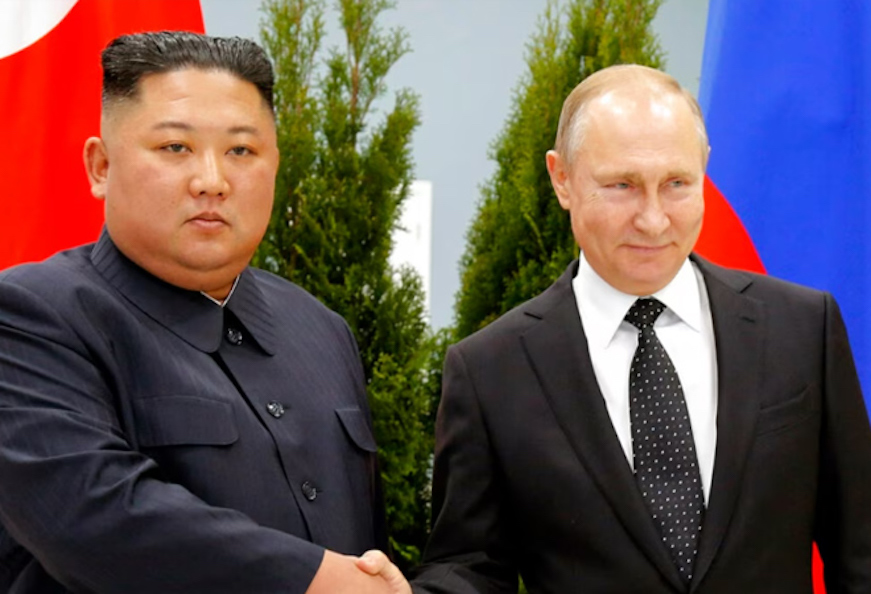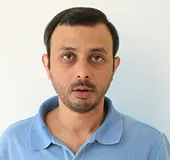-
CENTRES
Progammes & Centres
Location
Moscow’s growing dependence on the DPRK for military supplies is likely to bring about a change in the policies of countries that depend on Russian artillery systems

Moscow has made another bid to secure military support from the Democratic People’s Republic of Korea (DPRK). This time it is for ammunition. North Korean leader Kim Jong-Un travelled to Russia in his now famous armoured train to sign an agreement between Moscow and Pyongyang for the latter’s supply of ammunition to Russia. Notwithstanding the Russian Federation’s accumulation of a large inventory of munitions that goes back to the erstwhile Soviet Union, the shortfall in Russian munitions should come as no surprise, because it has exhausted a large volume of its ammunition against the Ukrainians in the ongoing Russia-Ukraine war. This depletion of stocks has compelled Russian President Vladimir Putin to secure munition supplies from its only key ally—North Korea, apart from China and Belarus. In a partnership that brings considerable mutual benefits, Pyongyang has agreed to supply Moscow with munitions to sustain Russia’s war effort against Ukraine in exchange possibly for a Russian-built satellite and food aid.
The munition crunch facing Moscow and the resulting urgency for additional artillery is largely a product of extensive and disproportionate use of artillery by the Russian military.
North Korea, lest we forget, is reputed to be home to some of the largest stockpiles of artillery munitions in the world. Indeed, even without nuclear weapons, some would aver, North Korean artillery fire could reduce the South Korean capital—Seoul—to rubble. In fact, North Korea possesses 6,000 artillery systems, which, if used in the very first hour of a war against its southern neighbour’s capital, the North Koreans could inflict 10,000 casualties. Thus, given the massive inventory of artillery ordnance with Pyongyang, it should help Moscow redress the shortfall it faces. Also, this latest development of a trade between Russia and North Korea will enable Moscow to sustain its military operations over a greater length of time.
The munition crunch facing Moscow and the resulting urgency for additional artillery is largely a product of extensive and disproportionate use of artillery by the Russian military. Russian domestic production has not kept pace with its battlefield use of artillery shells against Ukraine. As of today, Russian annual production of artillery weapons stands at 2 million, which is significantly below what the Russian military expends in artillery engagements, which was 11 million munition rounds in 2022; and this year (2023), it is expected to touch 7 million shells. Even before the current deal between Moscow and Pyongyang, the Russians were acquiring munitions from the DPRK, at least secretly.
The Russian military is likely to be locked in a protracted military campaign against Ukrainian forces and Moscow’s use of artillery munitions will remain steep for the foreseeable future.
Moscow’s growing dependence on the DPRK and even Iran for military supplies is likely to further influence and impact the way other countries, especially those that depend on and operate Russian artillery systems, view Russia’s acute need to secure supplies from the North Koreans. If Russia cannot meet its needs to service its military campaign against Kyiv, how will it keep its defence partners supplied? India, for instance, operates a whole range of Russian artillery systems. These systems range from Smerch Multi-barrel Rocket Launch Systems (MBRLs) to Grad-21 rocket launchers. While India has some native munition capacities to keep its Russian-origin artillery systems supplied, it will potentially face a serious challenge, if war were to break out between India and China or India and Pakistan or even a combined assault by both Beijing and Rawalpindi against India. The Ordnance Factory Board (OFB) already produces a variety of munitions fired from Smerch MBRLs, which India will need to significantly increase given the shortages facing the Russian military in Ukraine. The Russian military is likely to be locked in a protracted military campaign against Ukrainian forces and Moscow’s use of artillery munitions will remain steep for the foreseeable future.
Thus, the Russia-DPRK deal is a sign of things to come for states such as India with a high military dependence on Russia. In the long term, moving away from the Russian weapons systems is a necessity, making the purchase and operation of non-Russian military equipment now an imperative. This diversification need not necessarily come about by way of importing artillery systems and munitions from non-Russian suppliers, but New Delhi must make an equal effort to invest in indigenous advanced artillery systems. Russia should also permit India to build Russian-origin artillery weapons in India. Automobile and truck manufacturer Ashok Leyland is already making natively built 10×10 high mobility vehicles that have Smerch batteries mounted on them. The Smerch batteries with their six launchers will also need to be produced in India. This would apply equally to Grad rocket launchers. New Delhi will need to engage Moscow through the Indian-Russian Intergovernmental Commission on Military and Military-Technical Cooperation (IRICMMC) on whether Moscow is ready to share the technology for these rocket batteries and the compensation that India will need to provide Russia in exchange. At a minimum, a conversation will have to begin with Moscow on how India can develop Russian-origin weapons systems on a larger scale than what India does currently. Otherwise, the Indian Army (IA), which operates the Grad and Smerch rocket launch systems and the Ministry of Defence (MoD), which oversees military procurements, will have to double down even more in diversifying military acquisitions away from Russia, because of the latest deal between Moscow and Pyongyang.
Kartik Bommakanti is a Senior Fellow with the Strategic Studies Programme at Observer Research Foundation
The views expressed above belong to the author(s). ORF research and analyses now available on Telegram! Click here to access our curated content — blogs, longforms and interviews.

Kartik Bommakanti is a Senior Fellow with the Strategic Studies Programme. Kartik specialises in space military issues and his research is primarily centred on the ...
Read More +